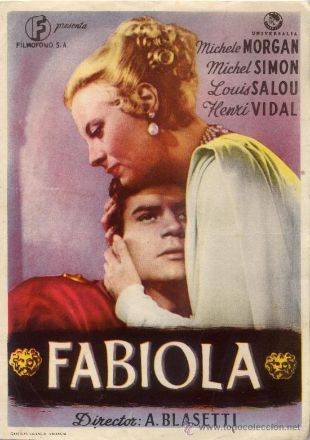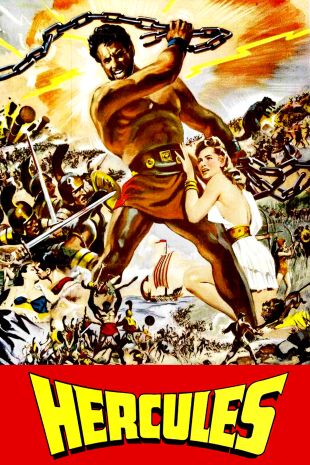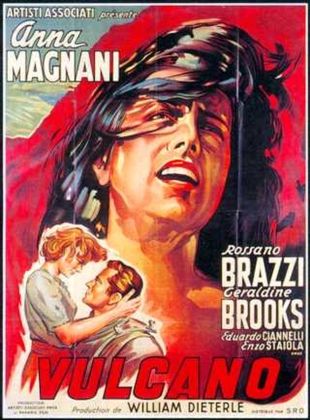If Italian film music had its equivalent to Max Steiner or Alfred Newman, in terms of influence and respect, it was Enzo Masetti. The composer/conductor, who also pursued a career in the concert hall and opera house, was born in 1893 in Bologna, a time when moving pictures were little more than a potentially diverting new invention. He had a natural inclination toward music and attended the Bologna Conservatory, from which he graduated in 1920. He initially devoted his attention to the writing of symphonic works and opera, and bid fair to be part of the generation that succeeded Pietro Mascagni and Ottorino Respighi. Then, in the mid-'30s, the film industry came calling. By then, filmmakers around the world had recognized the importance of a good score to a movie's success, and Masetti was a natural choice to join the first wave of film composers of the sound era in Italy. He made his debut as a screen composer with Cavalleria (1936), directed by Goffredo Alessandrini, and followed this up with La Fossa Degli Angeli (aka Tomb of the Angels, 1937), and La Caccia Alla Volpe Nella Campagna Romana (1938). From 1940, he was one of the busiest screen composers in Italy, scoring as many as six feature-length films in a single year -- several of these, including La Gorgona (aka The Gorgon, 1942), Gelosia (aka Jealousy, 1942), and Enrico IV (aka Henry IV, 1943), saw international release.
Stylistically, Masetti was a post-Romantic in the manner of Respighi, which made him ideal for scoring movies. He wrote melodic, tonal music laced with dissonant passages employing the full orchestra, but especially utilized the brass and the horns in stirring, martial music. Elsewhere, his love themes, carried by the strings, were as radiant and enveloping as anything heard in a Mascagni opera. Eventually, toward the end of his career, filmmakers picked up on the larger-than-life potential suggested in Masetti's music and engaged him for appropriate screen subjects. By the end of the war in 1945, Masetti was scoring five films that year, including the internationally released La Porta Del Cielo (aka The Gate of Heaven). In 1946, he was among the first group of winners of the Nastri d'Argento award (Italy's equivalent to the Golden Globes) for Best Score for his music for Giuseppe Amato's drama Malia (1945). Masetti also began teaching courses in film music at the St. Cecilia Conservatory and the Centro Sperimentale di Cinematografia, where his students included Mario Nascimbene. During the late '40s, he wrote the book La Musica nel Film (1950), which became a standard reference text on movie music for the Italian film industry.
Masetti was one of the busiest screen composers in Italy for another decade, his work heard in such movies as Vespro Siciliano (aka Sicilian Uprising) and Vulcano (both 1950), among other Italian features issued in America. It was two very late assignments, however, which immortalized Masetti's work among a new generation (or two) of international (and especially American) viewers: Le Fatiche di Ercole (1957) and Ercole e la Regina di Lidia (1959), better known as Hercules and Hercules Unchained, respectively, starring Steve Reeves, which became the two most popular Italian movies ever issued internationally. The latter was a triumphant martial score that captured the brutality of the story and the ferocity of the passions, of brother battling brother to the death and the destruction of the royal house of Thebes, all the while encompassing an achingly beautiful Orientalism as well as ravishing post-Romantic melodies. His music for those two films display Masetti at his best -- writing rich, expansive scores that capture the wonder of the mythological tales being played out on the screen, engaging free-flowing exoticism, and bringing a range of bold, tonal colors to the action. Indeed, without his music, the chances are that most of the scenes in either movie would just play like a bunch of muscular actors mugging for the camera. The horn-call leitmotif for Reeves' Hercules and the leaping musical figures (usually on the winds) depicting the dance of mystical and magical forces around the hero and his adventures were among the most oft-remembered soundtrack creations of fantasy cinema of the late '50s, eclipsed only by Bernard Herrmann's music for the Ray Harryhausen-spawned The 7th Voyage of Sinbad.
Masetti retired at age 65, following his work on Hercules Unchained. He died two years later in 1961. But as late as the '80s, Masetti's music from the two Hercules movies was of sufficiently interest to justify the release of soundtrack LPs of both complete scores.


